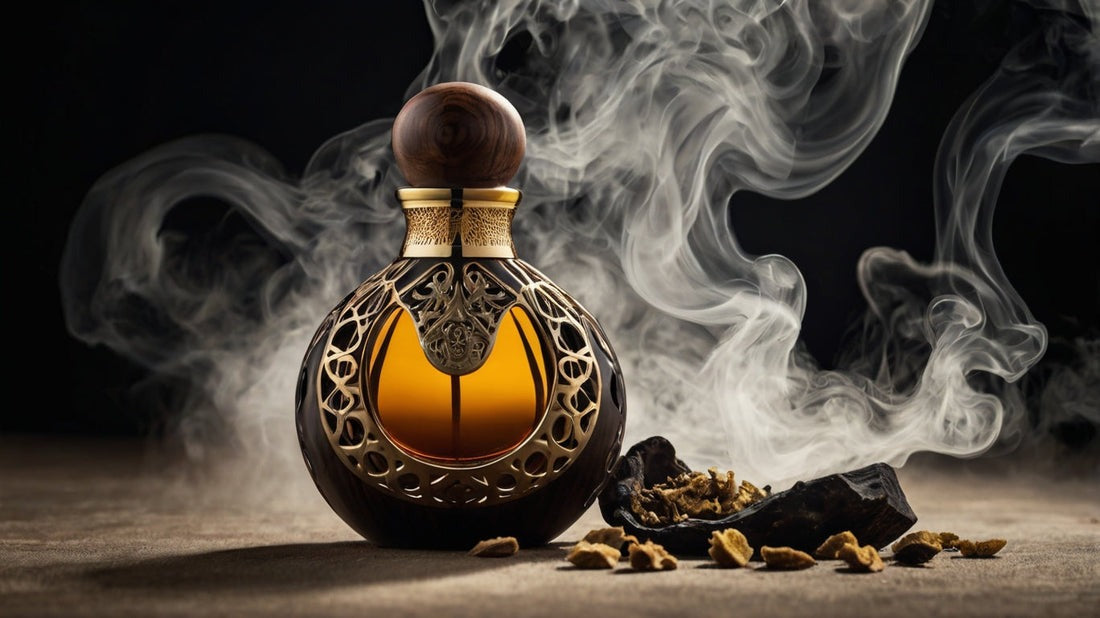
Fragrance Through the Ages: The Cultural Significance of Oud and Attars
Attars and oud have held a timeless place in human history. Their use runs deep across cultures, religions, and social classes. These aren’t just scents, they are cultural artifacts passed down through generations. From sacred rituals to expressions of royalty and luxury, attars and oud have shaped how people mark identity, honor the divine, and experience beauty. Far from being fleeting trends, these fragrances carry stories. They speak of rituals, royalty, devotion, and craftsmanship. At Attarly In Love, this heritage guides every drop we create.
Ancient uses and sacred rituals
In ancient Egypt, people used fragrant oils for spiritual protection, not just for personal adornment. Attars were offered to the gods, and tombs were packed with perfume vessels to accompany the dead. Scent was sacred.
In Hindu tradition, sandalwood attar has long been used in temple rituals and meditation. Its calming effect makes it essential for spiritual clarity. In Islamic cultures, musk attar and oud remain staples of personal grooming and religious ceremonies. Prophet Muhammad is said to have loved musk and encouraged its use. Oud is burned as incense during special gatherings, weddings, and Friday prayers, adding a spiritual and celebratory dimension.
In these traditions, scent was more than aesthetic. It carried emotional and symbolic weight. It represented purity, divinity, and respect for the sacred. The act of perfuming oneself before prayer or during festivals remains common, signifying inner and outer cleanliness.
Royalty, status, and opulence
Oud, known as liquid gold, was historically reserved for kings and nobility. Extracted from agarwood, this rare oil was prized in the royal courts of Persia, India, and Arabia. Wealthy patrons used it to scent their clothes, homes, and bodies. Its presence signaled power and prestige. In Japan, the elite practiced incense ceremonies using oud as part of cultural refinement.
Attars became a mark of sophistication. Indian Mughal emperors commissioned perfumers to create complex rose, saffron, and sandalwood blends. These weren’t casual indulgences, they were statements of taste and intellect. Attars were gifted as diplomatic offerings, shared between kingdoms, and presented in ornate containers designed to reflect the value of what they held.
Today, Attarly In Love continues that lineage. Every musk attar we bottle carries a sense of place and legacy. Every oud reflects centuries of respect and ritual. Our blends honor those traditions while bringing them to the modern fragrance lover.
East to West: The journey of attars and oud
As trade routes expanded, so did the influence of oud and attars. Scent traveled from Damascus's spice markets to France's royal palaces. Merchants carried these precious oils along the Silk Road and through maritime trade hubs, spreading their allure to distant lands.
In the Middle Ages, Crusaders returning from the East brought exotic fragrances. European nobility quickly adopted these luxurious scents. Apothecaries in Venice and Paris began experimenting with oud. The line between medicine and perfume blurred. Oud became both a cure and a luxury, praised for its calming properties and ability to mask unpleasant odors.
By the 19th century, perfumers in the West began to adapt these Eastern elements. While synthetics grew more common, natural oils never lost their appeal. Collectors sought out original blends, and artisans protected their formulas. The global demand for pure oud and attars only deepened, sparking a revival in artisanal perfumery.
Revival in the modern era
Today, buying oud online is easier than ever. But access doesn’t mean compromise. Customers seek authenticity. They want purity, not diluted imitations. Our attar shop focuses on small-batch, alcohol-free oils that honor traditional methods.
Modern perfumery often overlooks the patience and skill behind accurate attar making. At Attarly In Love, we resist shortcuts. Our oils are distilled slowly, sometimes over days, to capture depth and complexity. From the careful sourcing of raw materials to the slow aging process in copper stills, every step matters.
This return to roots isn’t just a trend but a shift in values. People want to connect with what they wear and feel grounded in tradition. When someone applies our musk attar, they’re not just wearing a scent. They’re stepping into a legacy that spans continents and generations.
Oud thrives because it offers something mainstream scents can’t: soul. It’s intimate, personal, and deeply tied to memory.
Attars as cultural identity
Scents mark identity. They evoke belonging. For many, the smell of oud is a memory: a father’s embrace, a festival, a sacred moment. In South Asian weddings, attar is still applied as a blessing. In the Gulf, oud welcomes guests and fills homes with warmth. In Indonesia and Malaysia, attars and bakhoor are used in ceremonies that honor heritage and hospitality.
These oils are not just accessories. They’re part of how people express faith, love, and connection. Fragrance becomes a language, one that speaks across time and distance. It is worn with pride and intention.
That’s why Attarly In Love exists—to offer more than fragrance. We offer access to heritage. Through our curated attar shop, you’ll find oud online that speaks across time and borders. These aren’t just scents. They are stories. They are culture in a bottle.
And they are worth holding onto. They are worth wearing with a purpose. Because when you choose an attar, you’re not just choosing how you smell. You’re choosing what you remember, what you honor, and what you pass on.